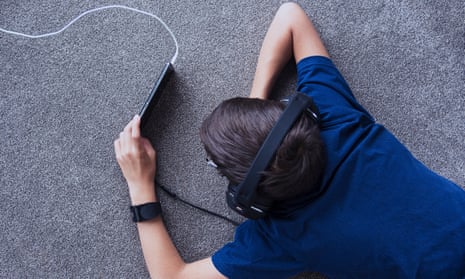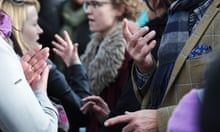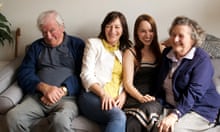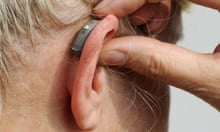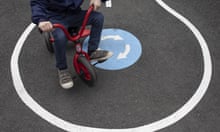More than 1 billion teenagers and young adults may be at risk of hearing loss because of their use of headphones, earphones and earbuds and attendance at loud music venues, a study suggests.
An international team of researchers estimate that 24% of 12- to 34-year-olds are listening to music on personal listening devices at an “unsafe level”. The findings were published in the journal BMJ Global Health.
They called for governments to “urgently” implement safe listening policies.
The World Health Organization (WHO) estimates that more than 430 million people of all ages worldwide currently have disabling hearing loss. Young people are particularly vulnerable because of their use of personal listening devices (PLDs), such as smartphones, headphones and earbuds, and from visiting loud music venues, amid poor regulatory enforcement.
“Recurrent or even single instances of unsafe listening may cause physiological damage to the auditory system, presenting as transient or permanent tinnitus and/or changes to hearing,” the researchers said.
“Damage from unsafe listening can compound over the life course, and noise exposure earlier in life may make individuals more vulnerable to age-related hearing loss.”
Their study examined rates of unsafe listening around the world.
The researchers, led by academics at the University of South Carolina in the US, examined previous studies on personal listening devices and loud music venues that took place between 2000 and 2021.
Thirty-three studies involving just over 19,000 people were included in the analysis.
The authors estimated that 23% of adults studied and 27% of “minors” were exposed to excessive noise from personal listening devices.
They also projected that 48% of people aged 12 to 34 around the world are exposed to excessive noise in loud music venues such as clubs or bars, but warned there was “limited certainty” in the estimate. Based on these figures, the researchers estimate that the global number of teenagers and young adults who could potentially be at risk of hearing loss as a result ranges from 0.67 billion to 1.35 billion.
The authors acknowledged the findings did not account for “demographic factors” or “changes to policy on safe listening in some countries”, but concluded that exposure to loud music at venues and through personal listening devices could mean as many as a billion teenagers and young adults could be at risk of hearing loss in later life.
They concluded: “Unsafe listening practices are highly prevalent worldwide and may place over 1 billion young people at risk of hearing loss.
“These findings highlight the urgent need to implement policy focused on safe listening habits worldwide in order to promote hearing loss prevention.”
